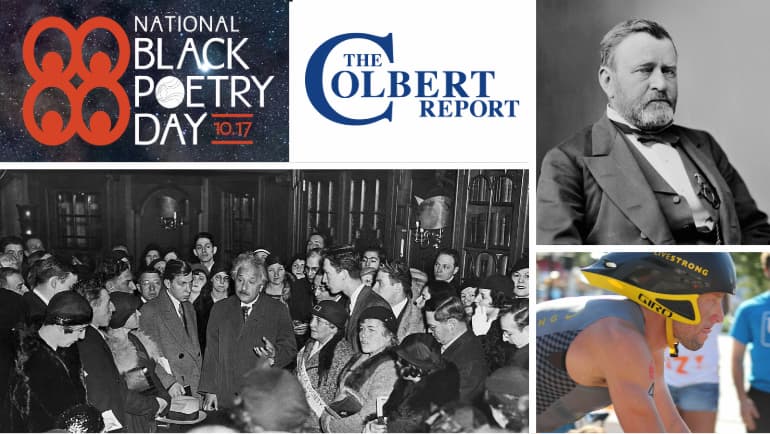Explore progressive, intersectional events that happened on October 17, in MainStream’s This Day in History.
1871: President Ulysses S. Grant suspends habeas corpus and declares martial law in nine South Carolina counties where the Ku Klux Klan was enacting violence. The move comes six months after Grant signed the Ku KLux Klan act that outlawed racial terrorism.
1888: The first bank organized and operated by African Americans begins: Capital Savings Bank of Washington, D.C. Capital Savings would operate until 1902.

1933: On his third trip to the United States from his home country of Germany, inventor Albert Einstein stays in the U.S. as a refugee after learning Nazi officials had raided his home and accused him of “dangerous Jewish intellectualism,” and a German magazine had called for his assassination.
1978: Jefferson Davis, who served as president of the Confederacy from 1861 to 1865, is restored as a citizen of the United States by President Jimmy Carter. Davis had been accused of treason and imprisoned after the war, but also served in the U.S. military prior to the Civil War. Carter described the reinstatement of Davis’ citizenship as an act to “finally set at rest the divisions that threatened to destroy our Nation.”
1985: Black Poetry Day is founded, to honor the birthdate of Jupiter Hamman, the slave born in 1711 who in 1760 became the first Black poet to be published.
1987: More than 100,000 people gather in India to honor the first-ever International Day for the Eradication of Poverty, which would be officially recognized by the United Nations General Assembly five years later as a day to declare poverty a violation of human rights.
2005: Comedian and commentator Stephen Colbert debuts “The Colbert Report” on Comedy Central, satirically portraying a far-right conservative commenting often nonsensically on current affairs. The show would continue through 2014.
2012: Champion cyclist Lance Armstrong loses his top endorsements from companies including Nike, Anheuser-Busch, and Trek Bicycles, one week after word from the U.S. Anti-Doping Agency (USADA) that Armstrong used liquid testosterone, blood transfusions, steroids and other drugs during his many bicycling wins from 1995 to 2005. Armstrong also stepped down on this date from his cancer-fighting charity, Livestrong.
2018: Canada becomes only the second country in the world to legalize recreational cannabis, after having legal medical cannabis since 2001. Canada was following in the footsteps of Uruguay, which legalized cannabis in 2013.
(Photos courtesy Wikimedia Commons)

